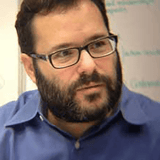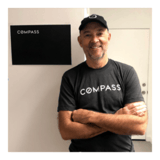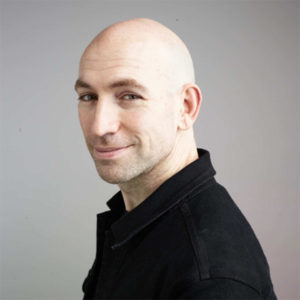Summary
Research for product work is well established; but how do you lead your research team to shape organizational goals? We’ll use a case study from Google to demonstrate how many of the same techniques, methods, and skills you and your team have today can be used to guide an organization’s goals. We’ll also discuss key changes to make for organizational success - from integrating with other insight functions to shifting how your team defines themselves and their work. The results are research organizations that produce insights to impact how your organization defines their goals.
Key Insights
-
•
Shifting UX research from feature-level tasks to organizational goal influence requires a deliberate three-stage process: preparing, aligning, and delivering.
-
•
Preparation includes internal research on both the organization and the research team to identify gaps in business acumen and advisory skills.
-
•
Setting ambitious, transparent goals that challenge the team to advise leadership energizes and motivates researchers beyond tactical work.
-
•
Framing all customer research—whether usability or strategic—as touching organizational hypotheses breaks down the false dichotomy between tactical and strategic research.
-
•
Identifying and partnering with a champion who holds a broad, high-level organizational view is critical before selecting problems to solve.
-
•
Long-term planning for research input into organizational decisions requires anticipating timelines 6-12 months in advance.
-
•
Collaborating with complementary disciplines like data science and market research builds trust in insights and increases organizational influence.
-
•
Translating complex user journey research into business language and metrics (like queries in Search) helps align UX findings with executive priorities.
-
•
Successful delivery is easier when groundwork is laid: relationship-building, mindset shifts, and strategic alignment matter more than methods alone.
-
•
Organizational influence by UX researchers often grows organically and is easier for those with established relationships rather than newcomers.
Notable Quotes
"Leadership growth among UX research is still fairly organic. We need to learn from each other how to establish ourselves in leadership roles."
"If you can follow these simple steps, you can shift the focus and impact of your team from features to organizational goals."
"We had a great skill of constant customer contact, but didn’t know where to communicate it to or how to influence priorities."
"Customer contact any time is touching on strategic issues because it hits on the foundations of the business."
"It’s a false dichotomy to think research is either tactical or strategic. The impact depends on how questions map to organizational goals."
"Find your champion before identifying the problems. You need someone with the widest aperture and highest positioning."
"We needed the right information at the right time for the right person and the right need. That’s the balancing act of influence."
"Partnering with data science and market research helped us deliver trusted, generalizable data that executives could act on."
"We shifted the conversation from you should do this because it’s the right thing for users to this benefits both customers and the business."
"Organizational influence is easier once you have pre-existing relationships to help with alignment."
Or choose a question:
















More Videos
"You’re born on third base but think you hit a triple — that’s the enterprise software delusion."
Standardizing Product Merits for Leaders, Designers, and Everyone
June 15, 2018

"If I don’t have a map, I can’t see patterns or apply context-specific gameplay."
Simon WardleyMaps and Topographical Intelligence (Videoconference)
January 31, 2019

"We can’t solve systemic problems with surface-level solutions or checklists."
Sandra CamachoCreating More Bias-Proof Designs
January 22, 2025

"Appealing to stakeholders’ best interests helps build trust and rapport."
Darian DavisLessons from a Toxic Work Relationship
January 8, 2024

"My goal today is to showcase how generative AI can go beyond just speeding up our processes and actually catapult us in our career."
Fisayo Osilaja[Demo] The AI edge: From researcher to strategist
June 4, 2024

"Nobody wants to buy or use a sloppy product, especially when enterprise users engage daily for hours."
Uday GajendarThe Wicked Craft of Enterprise UX
May 13, 2015

"No official kickoff was held, which meant shifting expectations and lack of alignment."
Davis Neable Guy SegalHow to Drive a Design Project When you Don’t Have a Design Team
June 10, 2021

"People were very adverse to changes because a small 0.5% conversion increase meant millions in revenue."
Eniola OluwoleLessons From the DesignOps Journey of the World's Largest Travel Site
October 24, 2019

"The operational glue that binds strategy, execution, and measurement in design is often missing, and that’s critical for scaling."
Aurobinda Pradhan Shashank DeshpandeIntroduction to Collaborative DesignOps using Cubyts
September 9, 2022
















